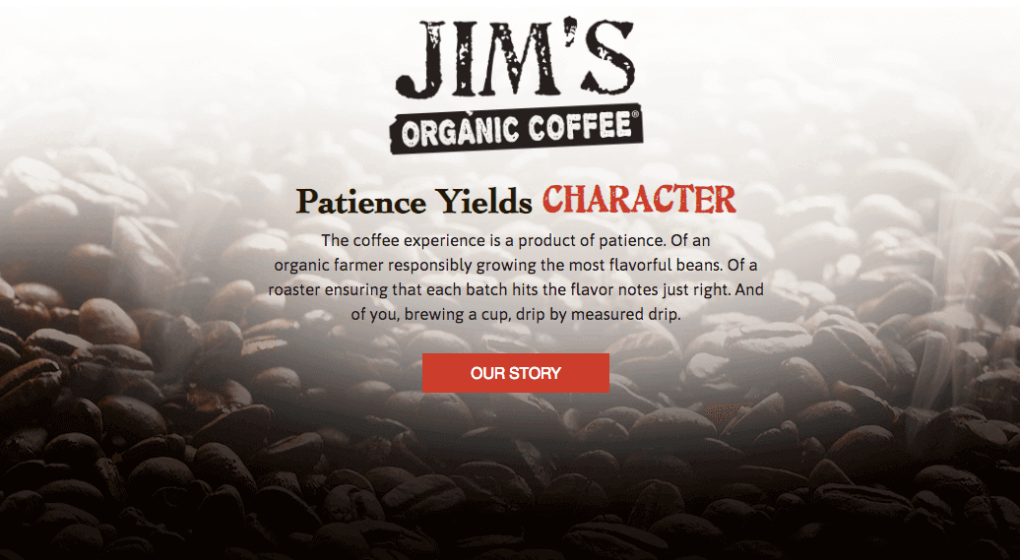
Categories:
Ask yourself – what is a brand? Some might immediately point to a logo. But while you might recognize a company like, say, McDonalds, by those iconic golden arches – their brand attempts to be bigger than their giant M. According to Matt Biespiel, senior director of global brand strategy, the McDonalds’ brand promise is simple, easy enjoyment, and their campaign “I’m lovin’ it” attempts to capture the emotion of eating a McDonalds’ hamburger. Now a bunch of us here at Ethos might debate whether or not McDonalds is truly “simple food” or how “enjoyable” it actually is. But we’re probably not their target audience. The point is that even if they decided to change their golden arches from yellow to blue, their brand promise wouldn’t have to change.
In the end, a logo is only a visual expression of the brand – the actual brand is the promise – what you promise your customers you’ll deliver each and every time they choose your product or service. Your brand promise can be something tangible – e.g. “cheap, convenient burgers” – or it can be emotional.
And when it comes to the specialty food market, emotional brands win the day.
Take coffee for example. Peet’s Coffee makes craft coffee – but their brand promise isn’t just good tasting coffee, it’s good people. When you buy Peet’s coffee, you’re getting more than just a cup of joe – you’re supporting the people who work for Peet’s, a diverse group of employees who care for each other and their communities; the farmers who grow Peet’s coffee, who are paid fairly and follow sustainable harvesting practices; and the communities Peet’s serves, who are treated as partners in the business.
Then there’s Jim’s Organic Coffee. They roast organic coffee – really good organic coffee, if you’ve ever tried it. But while everyone else who sells organic food goes right to the “no artificial this, no pesticide that,” Jim’s promises “coffee with character.” It’s not about a healthier coffee (because how many of us are drinking coffee for health, really?) Instead, the Jim’s Organic story is about taking the time to do things right; from farm, to roast, to brew. It’s an emotional message of care and thought that reinforces taste in a way that connects emotionally with the “coffee connoisseur.” This simple change was game changing for their brand.
Ben & Jerry’s offers a similar promise. They make good ice cream, sure, but their brand promise is more than that. It’s ice cream that’s good for everyone – that can make the world a better place through prosperity for all – the company, the employees, the suppliers, farmers, franchisees, customers, and neighbors alike. Their brand promise isn’t just about taste or wacky flavors, it’s about how eating their ice cream makes you FEEL – like a good person.
So how did these specialty food brands manage to stand out in such competitive and crowded markets? Hint: it wasn’t their logo (although good design and brand creative is critical in communicating brand messaging effectively). The key is differentiating your brand emotionally.
5 Strategies for Successful Specialty Foods Branding
1. Create an Emotional Brand
In a crowded market (like ice cream, or coffee) it can be hard to differentiate. Competitors are constantly coming up with new flavors, lower pricing, fancier packaging – and often it can feel like a race to the bottom. But a large segment of today’s consumers aren’t buying on price – they’re buying based on values. Not what can this brand do for me (save me money, calories, time, etc.) – but how does it make me feel when I buy it? How does it make me look? Understanding and communicating your brand’s emotional promise is just as important as communicating the physical, tangible attributes.
2. Consider Taking a Stand
While it’s possible to create an emotional brand that doesn’t “take sides” – in today’s socio-political climate, it’s becoming increasingly difficult. More than ever consumers are calling on brands to take a stand. Whether it’s gay marriage (see: Campbell’s Soup commercial), transgender equality (see: Target’s bathroom policy) or environmental protections (who could forget Patagonia’s “The President Stole Our Land” campaign) – Americans feeling frustrated by traditional avenues of civic engagement are increasingly turning to the “free market” to vote with their dollars instead. And when it comes to emotionally differentiated brands, consumers want to feel like their values align with the companies they support. The good news – they’re often willing to pay more for products from companies with similar values. The bad news – you can’t please everyone, so there will always be naysayers no matter what you stand for, including if you stand for nothing at all.
3. Live Your Promise
Arguably the most important part of any brand promise is that it has to be true. It sounds obvious but almost everyone has a story about a brand they trusted that in the end just couldn’t live up to expectations. Volkswagen diesel, anyone? While some may be able to squeak by for a while, no amount of capital or sexy marketing can float a brand forever who continually fails to live up to their promise in “real life.”Oh, and speaking of Volkswagen, anyone remember their parent company Audi’s 2017 Super Bowl commercial “Daughter”? It was all about a father experiencing the gender pay gap through the experiences of his daughter and vowing to change things. Sounds sweet, right? Except for the fact that Audi has not a single woman on their board of directors. Not exactly a leader in female empowerment. They got called out big time on social media for not living their purported values, and the ad was categorized as an epic backfire. Yep, authenticity is kind of a big deal in today’s world. When it comes to emotional brands, the stakes are incredibly high. Values-based consumers are diligent researchers, and they aren’t easily fooled by baseless claims or surface-y campaigns. In order to succeed as a values-based brand you have to live your promise day in and day out – in everything you do. An ad campaign, a package callout – even a large donation is not enough. You have to truly believe in whatever values your brand is built around and remain committed to them through and through.
4. Pull Back the Curtain
One of the best ways to prove to your customers that you truly live your values and deliver consistently on your brand promise is to pull back the curtain and take your customers “behind the scenes” with you. You’ve probably heard the phrase “people buy from people they like” – it’s one of the oldest sales tips in the book – but in today’s hyper-corporate culture it often gets forgotten. The key word in this phrase is people. Not businesses. Not corporations. Not brands. In order to appeal to the values-based customer you need to connect with them on a personal, emotional level.Social media is an excellent tool for doing this. Use your social platforms to take customers with you behind the scenes and show them the day to day of how your brand operates and what motivates you and your employees.
5. Deliver the Goods
It should go without saying but too often needs a reminder – no amount of branding or marketing (emotional or not) can make up for a shoddy product – especially when it comes to specialty foods. Specialty foods are just that – specialty – and people are typically buying them as a want, not a need. So while many customers prefer to buy from emotionally differentiated brands, very few are willing to do so at the expense of taste or quality.Top brands like Ben & Jerry’s are successful because they are emotionally differentiated AND they’re really good! If Ben & Jerry’s stopped making good ice cream and just promised “average ice cream that can change the world,” it would be unlikely to be successful. Focus on creating a great product first, and then differentiate based on values to generate loyalty and drive sales.
About Ethos
Ethos is a multiplatform branding agency that develops and executes integrated marketing campaigns across multiple channels for companies inside and outside of Maine.
At Ethos, we believe that the most effective way to set a company’s marketing course is by finding its core truth – its ethos. We know that once we discover and communicate that core truth, we can truly make a difference for each client’s unique marketing and business objectives.
With Ethos, you get more than a marketing agency. You get a long-term partner whose goals are your goals.
Learn more about the Ethos approach and the work we’ve done for our clients. Want to have a conversation about your brand’s core truth? Contact us!

